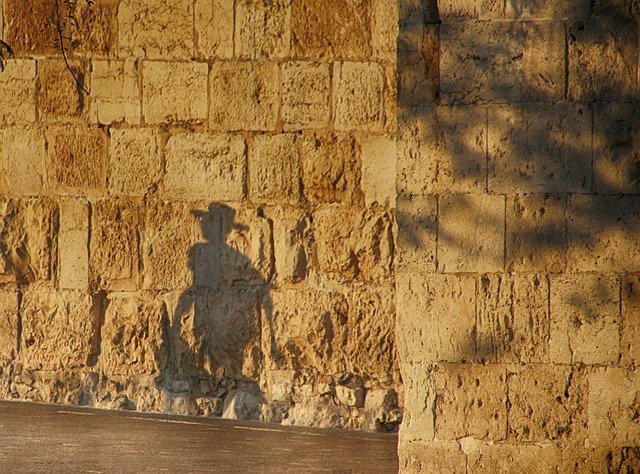Nehemiah cared deeply for his people and when he realized that the gates and walls of Jerusalem were still in ruins, he grieved deeply. That’s when he decided to take a huge risk and approach the Persian king for help. If not given favor by the king, he would be given death. But not doing so also had a price.
So as cupbearer to the king, Nehemiah delivered them their wine and let his heart hide no longer. He was deeply grieved and he let it show. When the king asked what was wrong, he told them plainly–the city gates and walls of his ancestors were in ruins.
The king asked what he wanted and told him boldly that he wanted to return to the land for a season to help them rebuild. He then took another bold step and asked for timbers to help in the rebuilding process. Through a miracle of God the king agreed.
“The king granted my requests, for I was graciously strengthened by my God” (Neh 2:8).
Escorted by military personnel for safety purposes, Nehemiah made it back to Jerusalem. After settling in for a few days, he snuck out at night to see just how bad the gates and walls of the city were. He saw plainly that Jerusalem lied in ruins.
He then called the officials together and rallied them to rebuild “so that we will no longer be in disgrace” (Neh 2:17). Then he
“told them how the gracious hand of my God had been on me, and what the king had said to me” (Neh 2:18).
The people were encouraged and they started the work of rebuilding. But as was expected, the people of the land, the enemies of Israel, were not happy to hear about this.
“When Sanballat the Horonite and Tobiah the Ammonite official heard that someone had come to seek the well-being of the Israelites, they were greatly displeased” (Neh 2:10).
“When Sanballat the Horonite, Tobiah the Ammonite official, and Geshem the Arab heard about this, they mocked and despised us, and said, “What is this you’re doing? Are you rebelling against the king?
I gave them this reply, The God of heaven is the One who will grant us success. We, His servants, will start building, but you have no share, right, or historic claim in Jerusalem” (Neh 2:19-20).
- God was with Nehemiah for this work and Nehemiah knew and acknolwedged it. He took no credit for himself. And at all times he acknowledge this, to himself (Neh 2:8), to the leaders of Israel (Neh 2:18), and to the enemies of Israel (Neh 2:20).
- Nehemiah acted in great courage to do what was right. His life was at stake at many times–when he went to the king, when he journeyed to Jerusalem, and perhaps even by the enemies of Israel. Difficult times call for great courage and potentially for great sacrifice. But passivity has its consequences as well.
- Nehemiah knew who Israel was and who they were not. He knew their identity and he knew also that his enemies did not have a historical claim to Israel. He stood on that ground in spite of opposition.
- Whenever one goes forth in the ways of God, resistance is guaranteed.
Nehemiah was a cupbearer and probably knew nothing about rebuilding a city’s walls or gates. But he went forward one step at a time. First getting permission from the king, then going to Jerusalem and scouting it out, then bringing good news and rallying the leaders of Israel, then standing up against opposition. One step at a time. One battle at a time. One act of faith at a time. He did something that in the last hundred years others had thought too difficult. He just went forward and trusted the Lord for the impossible.

